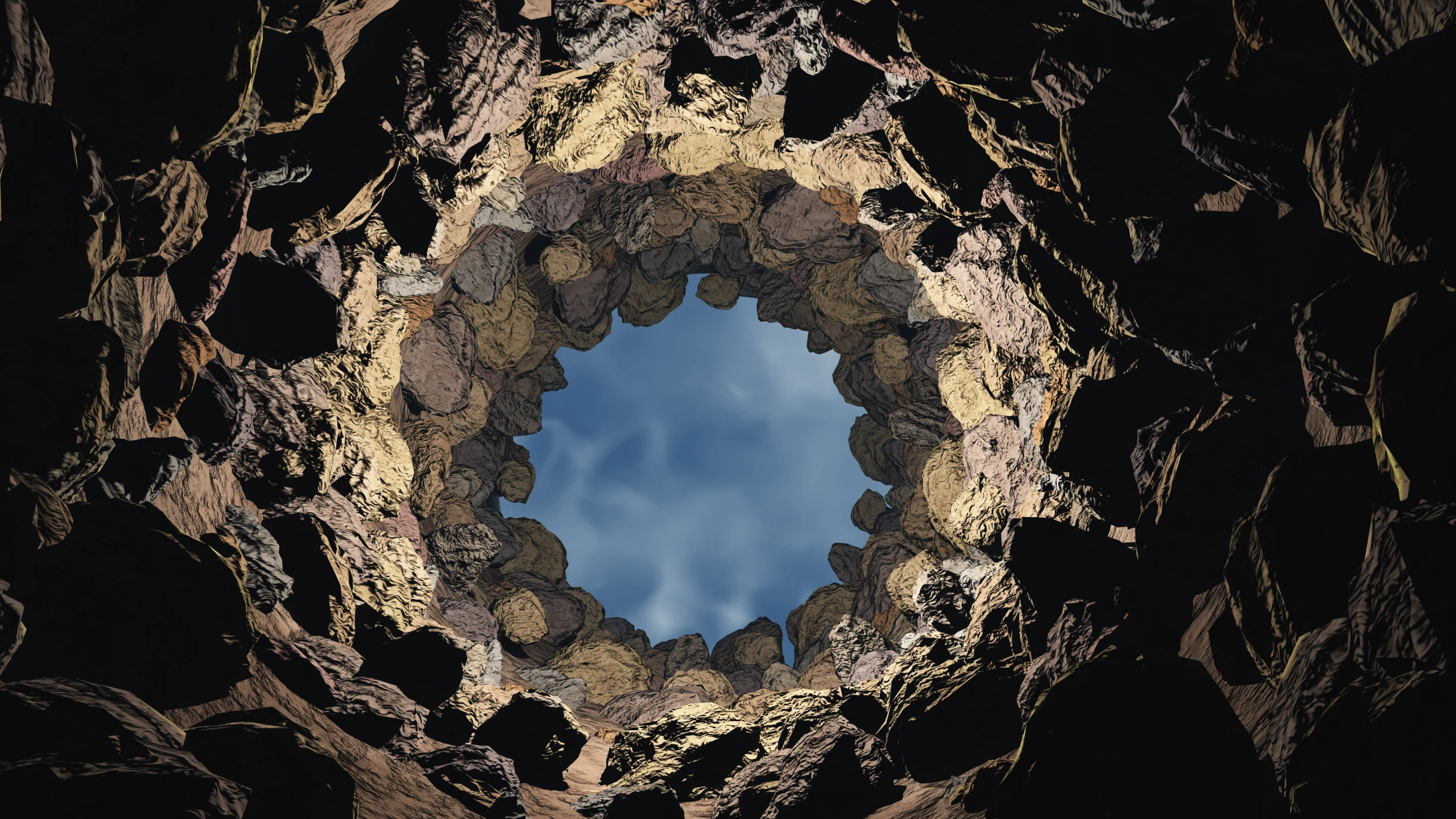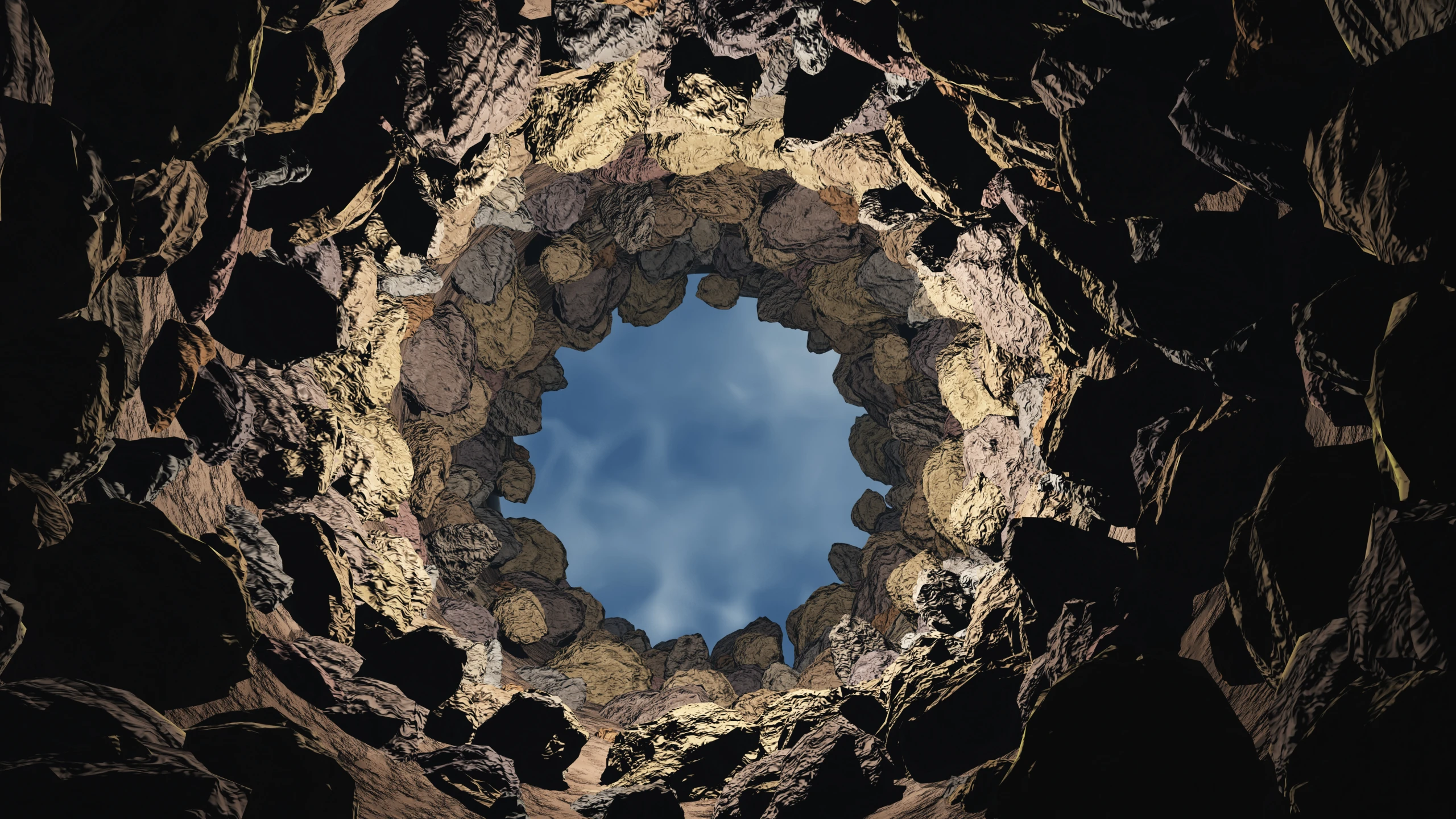The Children Who Challenge You, Help You Discover the Real G-d
Eisav Needs Yaakov, But Yaakov also Needs Eisav
Chassidus: Maamar V'Yiten Lecha 5728 #3
- November 8, 2021
- |
- 4 Kislev 5782
Rabbi YY Jacobson
948 views- 31Comment
- Call-in
Listen to the class on the phone
Call +1 (845) 201-1933
When prompted, dial the ID number below.
8298 MP3 MP4 Source Sheets - Copy Embed
Dedicated by Kurt Ackerman with hope for a refuah sheleima for Dovid ben Ephraim Halevi
Class Summary:
This is a text-based class on the Maamar, Chassidic discourse, by the Lubavitcher Rebbe, V'Yiten Lecha, presented by the Rebbe on Shabbos Parsha Toldos, 29 Cheshvon, 5728, December 2, 1967. The Rebbe edited it and published it later in 5750, 1989.
This class was presented on Parshas Vayeitzei, 4 Kislev, 5782, November 8, 2021, live from Rabbi Jacobson's home in Monsey, NY.
Chassidus: Maamar V'Yiten Lecha 5728 #3
Rabbi YY Jacobson
- November 8, 2021
- |
- 4 Kislev 5782
- |
- 948 views
Dedicated by Kurt Ackerman with hope for a refuah sheleima for Dovid ben Ephraim Halevi
Classes in this Series
Please help us continue our work
Sign up to receive latest content by Rabbi YY
Join our WhatsApp Community
Join our WhatsApp Community















Please leave your comment below!
Anonymous -3 years ago
The Seven Noachide Laws
BH. Does this 11th sphere have any impact on 7 Noachide laws?
Reply to this comment.Flag this comment.
Dani R -3 years ago
An amazing, integrated and profound shiur. yasher koach!
Reply to this comment.Flag this comment.
Leah klein klein -3 years ago
Its unrelevant to this shiur but will I be able to watch last night's interview mental health in a chaotic world
Reply to this comment.Flag this comment.
Admin -3 years ago
Yes, it's available now at Mental Health in a Chaotic World
Reply to this comment.Flag this comment.
Anonymous -3 years ago
If you view your structures as the entirety of absolute truth you cut yourself off from the infinitely greater G-dly TRUTH. If you can zoom out and view your structures as a small portion of truth within the much larger infinite G-dly TRUTH your structures can expand. This doesn't mean your structures are right or wrong in a particular state, but when perspective shifts the structure can be seen as part of the larger infinite TRUTH and as such redefined within that deeper reality. This is also humbling as it allows room for other people to hold different truths, without needing to fit them into our structures.
In this way the structure can be transformed from a limiting force into a piece of the larger TRUTH which it works to grow and expand into.
In practical terms this is the difference between explaining all the G-dly events that occur in this world (and are often hard to understand) through my existing knowledge versus admitting the limitations of my knowledge and that I don't understand in order to grow and expand my knowledge and understanding reflective of a deeper truth. This creates growth versus stagnation.
Reply to this comment.Flag this comment.
Anonymous -3 years ago
Q. When you undress yourself one can get wounded ?
Reply to this comment.Flag this comment.
Sarah Goldberg -3 years ago
The difference between 11s and 10s is an example of the
Baal Shem Tov who told the holy 10 yid that he was "dressed in peltz"
Reply to this comment.Flag this comment.
Yis Kap -3 years ago
Of course there are people who are smug in their yiddishkite. Is this that person's Eisav?
Reply to this comment.Flag this comment.
Sarah Goldberg -3 years ago
Among chassidim it seems lubavitchers are dressed as 11s11s
Going out there to reach the 11s, while other chassidim remain a "perfect 10" unable to reach the majority of yidden who are 11s
Reply to this comment.Flag this comment.
Anonymous -3 years ago
...this a deep internal process and journey that requires an awareness and consciousness of how our procedurally learned thoughts, feelings and behaviors have become deeply encoded due to our past...these are all difficult to identify and change, because they developed in the landscape of our childhood as survival skills and now they are on auto-pilot...
Reply to this comment.Flag this comment.
Sarah Goldberg -3 years ago
Shluchim go "out there" on the street, on campus, in jail
Where other frum people disdain their going there.
Avraham Avinu did likewise.
This is a 10 dressing up as 11 to help 11s get out of their 11ness and become a 10.
Reply to this comment.Flag this comment.
Yis Kap -3 years ago
Are you saying - that the father should 'take off his clothes' and get up late' with his son and go out with him for pizza breakfast?
Reply to this comment.Flag this comment.
Haya-Oksana -3 years ago
Life challenges teach us how be humble and appreciate all gifts and blessings that HaShem gives to us. Being humble is authentic and caring way to touch other person's heart to spark person's holiness...
Reply to this comment.Flag this comment.
Sarah Goldberg -3 years ago
In yechidus, Rebbes would have to find some slight reflection
Of the problem/shortcoming in themselves before helping the chosid with the problem. That's using the 11th of the number 11 to help the person become a "perfect: 10.
Reply to this comment.Flag this comment.
Yisroel kaplan -3 years ago
Is it possible for a person to have a mix of both kedusha /cleapa?
Reply to this comment.Flag this comment.
Sarah Goldberg -3 years ago
The number that best represents kedusha and achdus
Is ONE, not ten. Ten are just building blocks by which the ONE creates physicality. Ten are tools. ONE is the builder.
Reply to this comment.Flag this comment.
Sara -3 years ago
I read/heard...
that while we say and know that "for my sake the world was created", we should balance that out with the thought that "I am but dust and ashes". Two seemingly contradictory ideas. Another paradox to learn to live with and accept.
Reply to this comment.Flag this comment.
Sara -3 years ago
Not exactly a relevant question for this shiur...
but am wondering why so much focus on chesed (Avraham) and gevurah (Yitchak). There are 5 additional sefirot? of which teferet is discussed a little (Yaakov) but not much about the others except maybe as part of the omer.
Reply to this comment.Flag this comment.
Anonymous -3 years ago
Number 11 --stars- Torah baal peh
Through the number 11 brings to kedush through the toil in torah
Reply to this comment.Flag this comment.
Anonymous -3 years ago
birur nitzotzos
Reply to this comment.Flag this comment.
Anonymous -3 years ago
yitzchak was tricked?
Reply to this comment.Flag this comment.
Sara Metzger -3 years ago
Anonymous- 4 days ago
Why does he say that chesed is a cold nature? isnt it the other way around?
Reply to this comment.Flag this comment.
Sara Metzger -3 years ago
Anonymous- 8 hours ago
Chesed on its own does not discern whether the recipient is a healthy "vessel" for it or not. A common example, a child asks for something dangerous, like a knife; chesed would just give regardless of the possible consequences that comes with giving a child a knife, while gevurah would discern that the child is not "deserving" of this flow
Reply to this comment.Flag this comment.
Sara -3 years ago
Sara- 3 days ago
Gevurah is a bit confusing to me...You say that gevurah is deeper than Chesed. That gevurah is really about what is good for the other person based on what the person that is giving gevurah thinks the other person needs. How do we know that the other person is actually coming from that place of what is really good for the other person? How do we know that the gevurah is really honest and not coming from a place of manipulation or self interest of the person that is giving the gevurah. I do understand what you are saying, that if gevurah is coming from that really honest place, then maybe it is deeper than Chesed, but I don't know how to distinguish from real gevurah and not so real. Seems that the most honest and truthful is a bit of chesed along with gevurah. Does any of this make sense to you? Do you understand what I'm trying to say?
Reply to this comment.Flag this comment.
Sara Metzger -3 years ago
Anonymous- 3 days ago
How do physical brochos bring out kedusha?
Reply to this comment.Flag this comment.
Sara -3 years ago
Will have to listen to this again...
Sara- 3 days ago
to understand everything that you are saying. Maybe will have to listen to this several times. Hard to wrap my brain around it all. Seems difficult to attain. Lots of work. Not that I am afraid of the work, but need to figure out how to get there. Maybe you can help and elaborate on the process to get there?
Reply to this comment.Flag this comment.
Sara Metzger -3 years ago
Anonymous- 9 hours ago
Wow, upon first hearing this it was honestly overwhelming and hard to understand, now upon relistening it is mind blowingly deep and powerful. I will share my interpretation as I try to apply this to my life. I hope others can relate and understand.
Kelipah or detachment is a coping mechanism to deal with an overwhelming pain. That deep pain is in actuality the inverse of a sensitivity and awareness of very deep love. When we encounter life experiences or people that don't reflect the reality of deep love, it becomes overwhelmingly painful. Often the only way to cope is to tell ourselves that the love is a lie and the detachment is the truth. We glorify the kelipah or the banana peel so to speak, to protect ourselves from the pain of not having access to the actual fruit.
Upon realizing that access to the fruit or the love is actually within reach, the peel becomes insignificant. But only through connecting to the pain of perceived disconnection can we integrate the pain within the deeper reality of Love and Oneness. Through this integration the kelipah dissolves into the kedusha. This is deep challenging work to apply to real life. Thank you for sharing and explaining this framework to describe the process that encompasses a lot of healing work.
Reply to this comment.Flag this comment.
Sara Metzger -3 years ago
Amy Henry- 2 hours ago
Dear Rabbi Jacobson, I learn an incalculable amount of knowledge from every class you teach, which I now watch/listen to on a daily basis. This particular class was fascinating. Just when I 'got' the 10 vs 11 of kedushah vs klippah, you rattled my brain with another 11. Then just as I began to think to myself (at your expense, I'm sorry) "alright, enough with 10 which is really 11 and and 11 already), you dropped a brilliant 'bomb of wisdom that resonated within me. I am not an observant Jew but I bask in the warmth and light of Jewish learning, community and yiddishkeit. I am blessed to call a number of Chabad rabbis and especially their families my good friends. I feel at home with them and I see and learn great goodness and insights from them. I also have seen some of their struggles. I remember my rabbi in another town many years ago express a longing to be in Crown Heights where he could 'relax' and daven. That seemed to me at the time a strange wish for him to have. Here he was leading our services in his own community. Why should he long to be back in Brooklyn? And he didn't say he longed to be with his family or see them, but so he could daven. You explained his feelings at the end of this class! Unless I misunderstood, what you were describing was the essence of what the Rebbe created, right? Shluchim!! Once these exceptional people have enough kedushah within themselves they were/are sent out to seek fellow Jews with more apparent klippah, and to help show them and cultivate the kedushah we all have within us. Now I understand at least partly why the rabbi was longing to daven at 770. In the community he and his wife created he was 'working' and usually at things outside his spiritual comfort zone as you so aptly call it. Raising money, always thinking of, caring for, responding to the needs of others while tip toeing around the egos and self interests of others. So, while he could keep all the mitzvah and behave 'properly' it must have been difficult for him to tune in spiritually sometimes. Perhaps it is a challenge for all shluchim? If I have, G-d forbid managed to take the wrong message from your wonderful class, please let me know. I felt that you were speaking of more than just shluchim, but were alluding to the Alter Rebbe's advice to all of us. I look forward to Monday's class to learn ever more. You are a genuine blessing from Hashem, Rabbi. Thank you so much for all you teach, speak, and share!
Reply to this comment.Flag this comment.
Sara Metzger -3 years ago
Anonymous- 6 days ago
We have to become plantersWe have to believe, even in our times of traumas etc. when it seems we are completely lost like the seed disintegrated in the ground. We have to become planters to cultivate the land that is in front of us ( sfas emes el haaretz asher arecha) and in this way we can sprout hundred fold ( without these challenges we would never grow)
Reply to this comment.Flag this comment.
Sara Metzger -3 years ago
Sarah Goldberg- 6 days ago
Yitzchak uses the name Elokim to blessBut....he thought he was blessing Esav. Esav, being who he was, and with the potential he had, both of which were well known by Yitzchak, and so Yitzchak decided that the appropriate channel to convey the brochas he had for Esav, was Elokim, gevurah.I.e. Elokim and gevurah were the right channels for Esav, whom Yitzchak thought he was blessing. And obviously he intended to reserve the name Hashem and chesed for Yakov. This was thwarted by the fact that Rivka abd Yakov conspired to dupe Yitzchak and switch. After the duping, only Hashems name as a channel and chesed were left for the true Esav, and this was not appropriate for him. Hence his cry "have you no Brochas left for me?"
Reply to this comment.Flag this comment.
Sara Metzger -3 years ago
Anonymous- 6 days ago
Chesed gives openly and indiscriminately regardless of whether the person deserves or any other factor. Gevurah is discriminate love, giving in a way that the person can receive, including withholding giving to allow the other space to explore and grow. This is the difference between giving out fish (chesed) and withholding giving (gevurah) in order that they should learn to fish independently. The withholding is a deeper love because if done with love because it helps the person actualize a greater independent potential. Of course this can be distorted with cruelty, you can watch a person starve and call it gevurah. But when done with love, this brings people to their power.
Reply to this comment.Flag this comment.
Sara Metzger -3 years ago
Sarah Goldberg- 6 days ago
Avraham was afraid to bless Yitzchak becauseHe foresaw that Esav was to come from him.But.....Ishmael had already come from Avraham, (no nevua necessary) and, nevertheless Hashem blessed Avraham with everything.
Reply to this comment.Flag this comment.
Sara Metzger -3 years ago
Zalmy Plotke- 6 days ago
Is this gevurah still applicable today putting into consideration that the Rebbe said that this is a generation of chessed?
Reply to this comment.Flag this comment.